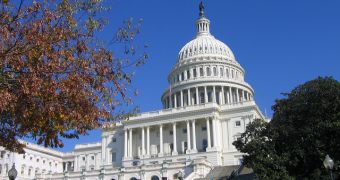A recent bill introduced by a group from the House of Representatives might give the government the proper authority in blocking websites that host copyrighted materials.
According to Wired, the proposal is very similar to the Protect IP Act, both of them allowing law enforcement representatives to force ISPs in restricting account holders from visiting domains that are considered to store illegal content.
Such as in the case presented earlier by a British court, the bill will allow the US attorney general to make sure that no workarounds can be set in place to bypass a court order.
“A service provider shall take technically feasible and reasonable measures designed to prevent access by its subscribers located within the United States to the foreign infringing site (or portion thereof) that is subject to the order, including measures designed to prevent the domain name of the foreign in fringing site (or portion thereof) from resolving to that domain name’s Internet Protocol address,” reads part of the paper.
Some voices claim that the new law could be interpreted to deny journalists from writing about DNS workarounds. A good example for this are the alternatives published by many news groups on The Pirate Bay's attempts to go around the blockade set by certain Belgian ISPs.
If the bill passes, the general attorney could go after anyone who publishes alternative ways to access a banned site.
House Judiciary Committee Chairman Lamar Smith, the one that proposed the bill, believes that the legislation is necessary because “Rogue websites that steal and sell American innovations have operated with impunity.”
“The online thieves who run these foreign websites are out of the reach of U.S. law enforcement agencies and profit from selling pirated goods without any legal consequences. According to estimates, IP theft costs the U.S. economy more than $100 billion annually and results in the loss of thousands of American jobs,” Smith revealed in a statement.

 14 DAY TRIAL //
14 DAY TRIAL //